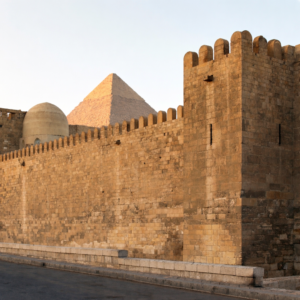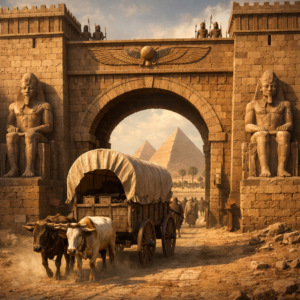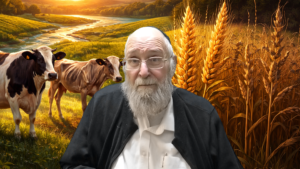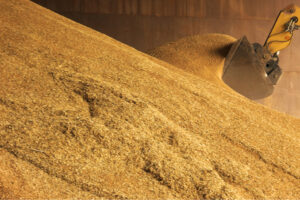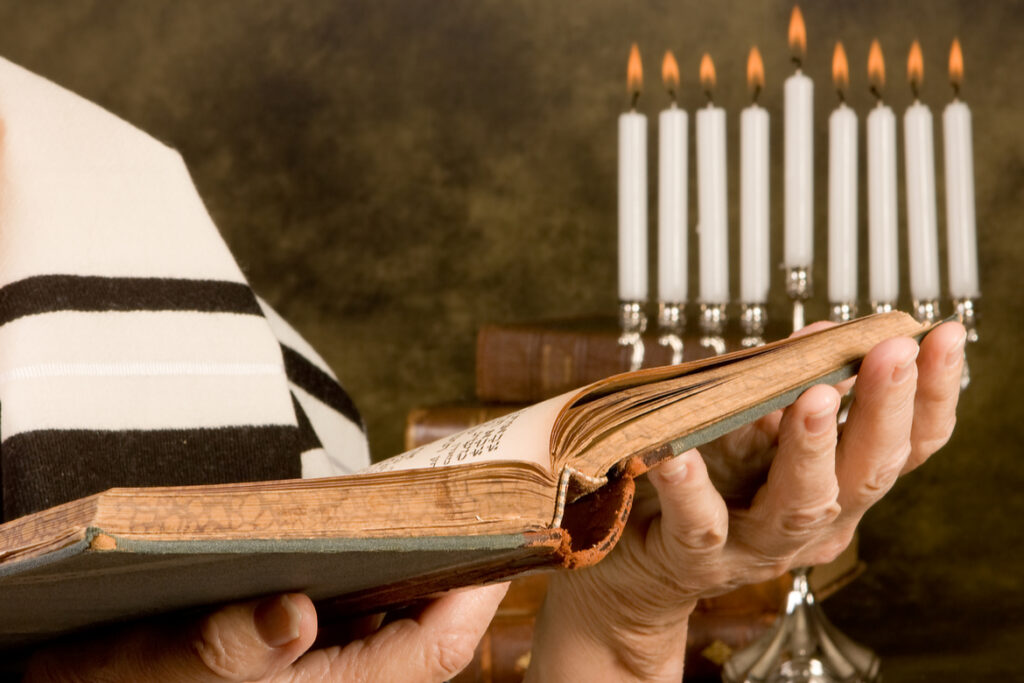The Joy of Salvation
In nearly every shul these days, on Shabbos at the time of the Torah reading, there is almost always someone who has traveled to or from Eretz Yisrael reciting the blessing of Hagomel (thanks). Four categories of individuals are required to thank God publicly: one who travels through a desert, a prisoner who is released from jail, a sick person who is healed, and someone who completes a sea voyage (Shulchan Arukh 219:1).
Although the standard explanation for why there is a halakhic requirement to recite this special blessing is in order to show gratitude to God for surviving a dangerous situation, Reb Noson understands that, in a deeper sense, the dangerous situation was just the catalyst but not the true danger they faced.
We have all read and heard accounts of great individuals who were imprisoned for their beliefs or sent into exile. In many cases, the suffering of these heroes strengthened their resolve and, when they were finally released, they became even greater forces for change. Difficult circumstances may make life seem hard or even almost impossible to endure, but the true definition of difficulty and trouble lies in our mental state and not any external conditions.
The greatest mental strife we face is depression and sadness. When a Jew falls into such a state, not only does he or she feel forlorn, but God’s Presence also goes into a state of exile. The prophet Isaiah therefore says, “In all of their grief, He has pain” (Isaiah 63:9; see Metzudat Dovid). If we are feeling down and out, then God is, so to speak, feeling similarly. In such a state, the human tendency is to crave comfort and pleasure so as to hide the pain. People will run after the false sense of self achieved by dreaming about accumulating wealth, or look for sensual pleasures to make them feel better about themselves. This becomes a vicious cycle and the person sinks into further disconnect and despair. But the real cause of this entire process is the neshamah (soul) calling out for closeness with her Father in Heaven, Who is the Source of all meaning and purpose.
When the Holy Temple stood in Jerusalem, a person who had been saved from difficult circumstances was required to bring a thanksgiving-offering. This wasn’t just a sign of appreciation, but an indication that the joy a person feels when he is thankful for being saved is his actual salvation. If the greatest danger he faced was his mental state of anguish and despair, then his greatest salvation is his current state of joy and sense of freedom. Therefore, even today when we cannot bring the thanksgiving-offering, we must still recite the blessing and express our great joy—because our newfound joyous state is our redemption. Only when we are in this state of joy does God’s Presence dwell among us.
Our parashah tells us that “he should offer with the thanksgiving-offering unleavened loaves” (Leviticus 7:12). Rashi explains that four types of bread were brought, each consisting of ten loaves. The complex and strenuous process of growing, harvesting and finally baking bread reflects a state of depression. Adam was therefore cursed, “By the sweat of your brow you will eat bread” (Genesis 3:19). Therefore, when one brings this offering and elevates it to God, he must bring ten loaves, paralleling the ten types of song that are the source of all joy. Only through joy can a person elevate his food and all his other pleasures to become spiritual experiences.
In the future, when God’s ways will be revealed and the world will be filled with the knowledge of God, we will busy ourselves only with thanking God all day long (Vayikra Rabbah 9:7). At that time, when we come to truly know God, nothing will ever be able to divide us from Him again, and we will be in a perpetual state of joy. But even today, by thanking God for everything He does in our lives, especially after we see His deliverances, and holding on to this joy, we can reach the most awesome spiritual heights, so that nothing has the power to keep us from His Presence. Amen!
Based on Likutey Halakhot, Hilkhot Hoda’ah 6:2, 3
- 0 comment



